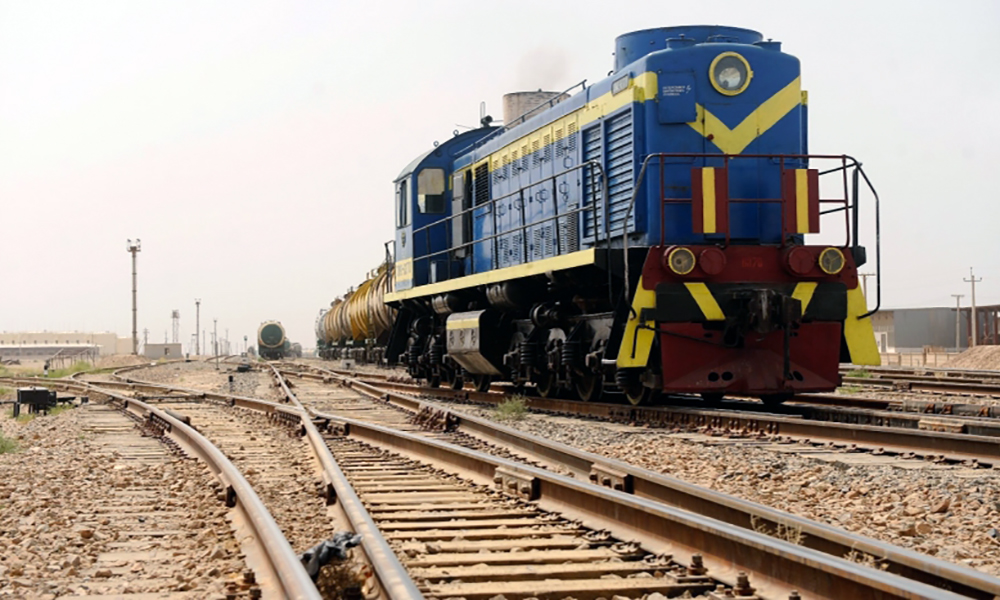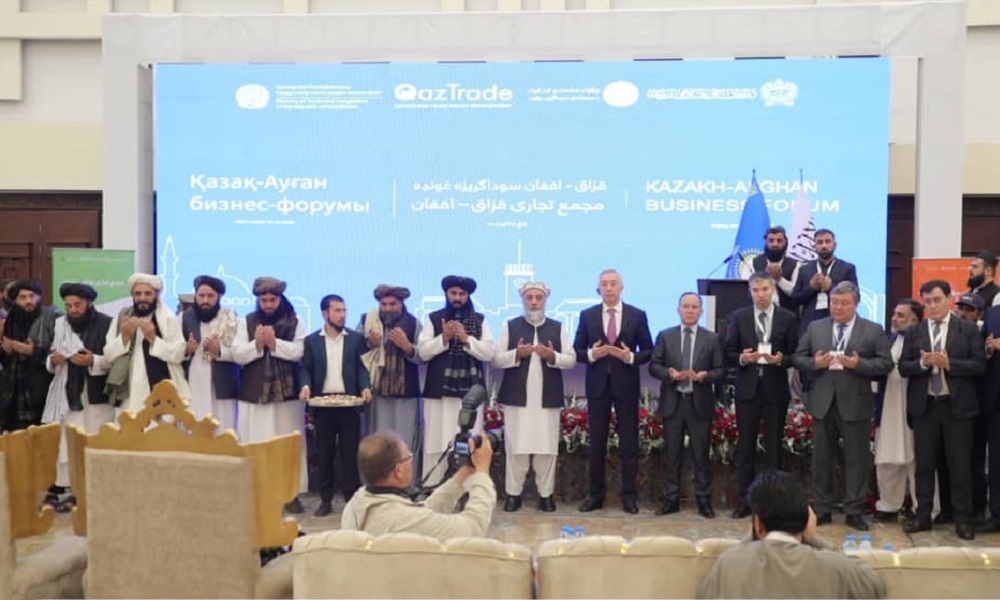Business
World Bank and ARTF approve three emergency projects totaling $793 million

The Afghanistan Reconstruction Trust Fund (ARTF) Management Committee and the World Bank this week approved three projects totaling $793 million that will provide urgent and essential food, livelihood, and health services to the people of Afghanistan.
According to a statement issued by the World Bank, all three projects will be implemented off-budget out of the interim government’s control, through United Nations agencies and non-governmental organizations. The activities are coordinated with other multilateral and bilateral funding pledges for Afghanistan, the statement read.
“These projects are designed to help women and girls benefit from project activities. Entry criteria, including the principles of equitable access for women, must be met and funds will be released in two tranches to provide the opportunity for ARTF donors to review progress on the ground and assess whether announced policies of the interim administration continue to allow the participation of women.
“All three projects also have internal fiduciary control and independent monitoring arrangements to ensure that funds are utilized for their intended purposes,” the statement noted.
The Afghanistan Emergency Food Security Project will help in the production of food crops for smallholder Afghan farmers and prevent the further deterioration of food security.
A total amount of $195 million will be released in two tranches: $150 million and $45 million, the World Bank said.
The second project, the Afghanistan Community Resilience and Livelihoods Project will help provide short-term livelihood opportunities and deliver urgent essential services in rural and urban areas.
According to the World Bank, the project aims to provide livelihood and income opportunities for one million households in 6,450 rural communities across Afghanistan and the cities of Bamiyan, Herat, Jalalabad, Kabul, Kandahar, Khost, Kunduz, and Mazar-e-Sharif.
Women and vulnerable groups, including persons with disabilities and internally displaced people, will receive special assistance, the World Bank’s statement read.
A total amount of $265 million will be released in two tranches: $100 million and $165 million.
The third project, the Afghanistan Health Emergency Response Project will increase the utilization and quality of essential health services in Afghanistan.
This project aims to deliver basic health, nutrition, and COVID-19 services in partnership with national and international service providers, in more than 2,300 health facilities nationwide.
Among the other expected results, the project will help two million children to be fully immunized and more than 1.2 million women will give birth at the health facilities.
A total amount of $333 million will be released in two tranches.
Business
Pakistan’s deputy PM discusses Trans-Afghan Railway Line project with Uzbek FM
On Thursday, in a post on X, Pakistan’s Foreign Ministry said Dar hoped that the three countries would soon sign the framework agreement for this important regional connectivity project.

Pakistan’s Deputy Prime Minister and Foreign Minister Ishaq Dar held a telephone conversation with the Foreign Minister of Uzbekistan, Saidov Bakhtiyor Odilovich, on Thursday to discuss the Trans-Afghan Railway Line Project.
This comes after Dar’s recent visit to Kabul, where he held talks with officials on the planned Uzbekistan-Afghanistan-Pakistan Railway Line Project.
The three neighboring countries signed an agreement in February 2021 to construct a 573-kilometer railway line through Afghanistan, connecting landlocked Central Asia to Pakistan seaports, with an estimated cost of $4.8 billion to enhance regional economic connectivity.
On Thursday, in a post on X, Pakistan’s Foreign Ministry said Dar hoped that the three countries would soon sign the framework agreement for this important regional connectivity project.
The two leaders also discussed strengthening bilateral relations, enhancing economic and trade connectivity, promoting people-to-people ties, and exchanged views on current regional and international issues.
Business
Afghanistan’s growth prospects remain uncertain amid global uncertainty: World Bank report
According to the report, in Afghanistan, despite aid cuts, the economy is estimated to have grown by 2.5 percent in FY24-25, which was slower than the pace of population growth.

Amid increasing uncertainty in the global economy, South Asia’s growth prospects have weakened, with projections downgraded in most countries in the region, including Afghanistan.
Stepping up domestic revenue mobilization could help the region strengthen fragile fiscal positions and increase resilience against future shocks, said the World Bank in its twice-yearly regional outlook – the South Asia Development Update – which was released on Wednesday.
According to the report, in Afghanistan, despite aid cuts, the economy is estimated to have grown by 2.5 percent in FY24-25, which was slower than the pace of population growth.
Growth is forecast to increase only moderately to 2.2 percent in 2025/26, the World Bank report stated.
Coinciding with the release of the South Asia report was the World Bank’s Afghanistan Development Update report which explained the situation in more detail.
Stating that while the country’s economy is gradually recovering, the outlook remains uncertain due to growing fiscal pressures, a widening trade deficit and persistent poverty and food insecurity.
The report stated that these factors continue to strain households and hinder inclusive growth.
However, Afghanistan recorded its second consecutive year of growth in 2024, the World Bank stated, adding that the recovery was largely driven by the agriculture sector.
Manufacturing and services remained subdued due to an unfavorable business environment, persistent export barriers and declining foreign aid.
Modest gains in private consumption and real estate investment contributed to growth, the report stated, adding that rising imports widened the trade deficit, increasing external vulnerabilities.
At the same time, rapid population growth and the return of refugees continue to strain job creation and public service delivery, further deepening the fragility of the economy.
Deflation meanwhile persisted in 2024, with food prices having declined sharply. Non-food inflation remained stable. Persistent deflation continued in 2024,
Poverty, food insecurity, and malnutrition however remained pressing challenges and despite modest wage growth, high unemployment and restrictions on women continue to strain livelihoods, the report stated.
Early this year, 14.8 million people faced food shortages, while acute malnutrition – now affecting 4.7 million women and children – is worsening. The World Bank warned that without urgent action, human capital development will be further undermined.
Fiscal pressures meanwhile remained high as domestic revenue mobilization, though relatively strong, is insufficient to offset the sharp decline in aid.
The report also stated that exports declined in 2024, while imports surged – widening the trade deficit.
The increase in imports however was driven by rising industrial demand and substitution of domestic consumer goods.
The afghani (AFN) currency, which had appreciated significantly in 2023 due to strong foreign inflows stabilized with slight depreciation in 2024 but the banking sector remained fragile.
The World Bank reported that economic growth is expected to slow to 2.2 percent in 2025 amid aid disruptions, before gradually recovering to 2.5 percent in 2026–27.
The organization however warned that while Afghanistan’s youth remain a vital source of resilience and untapped potential, urgent action to expand job opportunities for them is needed.
Business
Afghanistan-Kazakhstan trade soars by 32%, target set at $3 billion, says Azizi

Acting Minister of Industry and Commerce, Nooruddin Azizi, stated at the end of the first day of the Kazakh-Afghan trade exhibition that trade volume between the two countries has increased by 32 percent.
He added that both sides aim to raise bilateral trade to $3 billion.
According to a statement from the Ministry of Industry and Commerce, Azizi welcomed the visit of the Kazakh delegation to Afghanistan and expressed appreciation for Kazakhstan’s humanitarian assistance, support, and collaboration, including in the area of digitalizing Afghan government institutions.
Azizi emphasized the importance of connecting Central Asia to South Asia through Afghanistan and discussed expanding trade agreements, holding exhibitions of products and goods in both countries, establishing trade centers in Kabul and Almaty, and facilitating exports and imports between the two nations.
Kazakh Deputy Prime Minister Serik Zhumangarin also stressed that Afghanistan and Kazakhstan are key strategic partners in the region. He described the holding of the business forum as significant for enhancing economic cooperation, establishing new trade relations, exchanging experiences, and promoting joint initiatives.
Zhumangarin stated: “We believe a stable and prosperous Afghanistan is a key factor for peace and stability in the region and has the potential to become a major logistical hub connecting Central and South Asia.”
The exhibition of Kazakhstani products and goods was held at the invitation of the Ministry of Industry and Commerce, with the participation of 25 Kazakh companies.
-

 World5 days ago
World5 days agoThousands of protesters rally against Trump across US
-

 Latest News5 days ago
Latest News5 days agoPolio vaccination campaign launched in Afghanistan
-

 International Sports3 days ago
International Sports3 days agoIPL 2025: Robo-Dog ‘Champak’ explained
-

 International Sports5 days ago
International Sports5 days agoIPL 2025: 14-year-old Vaibhav Suryavanshi becomes youngest IPL player
-

 Latest News3 days ago
Latest News3 days agoAriana Afghan Airlines increases flights to China
-

 World4 days ago
World4 days agoPentagon chief Hegseth shared sensitive Yemen war plans in second Signal chat, source says
-

 Latest News3 days ago
Latest News3 days agoChina invites various Afghan delegations to attend Shanghai forums
-

 Latest News2 days ago
Latest News2 days agoAfghan-American appointed to lead US policy on Afghanistan
























